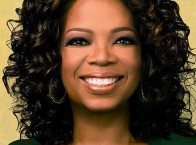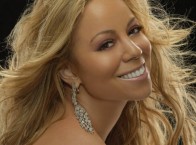Williams has composed the music and served as music director for nearly eighty films, including Saving Private Ryan, Amistad, Seven Years in Tibet, The Lost World and more.
1. One of the most popular and successful American orchestral composers of the modern age, John Williams is the winner of five Academy Awards, 17 Grammys, three Golden Globes, two Emmys.
2. He also received five BAFTA Awards from the British Academy of Film and Television Arts.
3. He is best known for his film scores and ceremonial music.
4. Williams is also a noted composer of concert works and a renowned conductor.
5. Williams' scores for such films as Jaws, E.T.: The Extra-Terrestrial, Schindler's List, as well as the Indiana Jones series, have won him multiple awards and produced best-selling recordings, and his scores for the original Star Wars trilogy transformed the landscape of Hollywood film music and became icons of American culture.
6. Williams has composed the music and served as music director for nearly eighty films, including Saving Private Ryan, Amistad, Seven Years in Tibet, The Lost World, Rosewood, Sleepers, Nixon, Sabrina, Schindler's List, Jurassic Park, Home Alone, Far and Away, JFK, Hook, Presumed Innocent, Always, Born on the Fourth of July, the Indiana Jones trilogy, The Accidental Tourist, Empire of the Sun, The Witches of Eastwick, the Star Wars trilogy, E.T.: The Extra-Terrestrial, The Empire Strikes Back, Superman, Close Encounters of the Third Kind, Jaws and Goodbye Mr. Chips.
7. Williams has been awarded several gold and platinum records, and his score for Schindler's List earned him both an Oscar and a Grammy.
8. In 2000, at the ShoWest Convention USA, he was honored as Maestro of the Year by the National Association of Theater Owners.
9. John Williams was born in New York and moved to Los Angeles with his family in 1948.
10. He attended UCLA and studied composition privately with Mario Castelnuovo-Tedesco.
11. After service in the Air Force, Mr. Williams returned to New York to attend the Juilliard School, where he studied piano with Madame Rosina Lhevinne.
12. While in New York, he also worked as a jazz pianist, both in clubs and on recordings.
13. He then returned to Los Angeles, where he began his career in the film industry, working with such composers as Bernard Herrmann, Alfred Newman, and Franz Waxman.
14. He went on to write music for many television programs in the 1960s.
15. He won two Emmy Awards for his work.
16. In January 1980, Williams was named nineteenth Conductor of the Boston Pops Orchestra since its founding in 1885.
17. He assumed the title of Boston Pops Laureate Conductor, following his retirement in December 1993, and currently holds the title of Artist-in-Residence at Tanglewood.
18. Williams has written many concert pieces, including a symphony, a sinfonietta for wind ensemble, a cello concerto premiered by Yo-Yo Ma and the Boston Symphony Orchestra at Tanglewood in 1994, concertos for the flute and violin recorded by the London Symphony Orchestra, concertos for the clarinet and tuba, and a trumpet concerto, which was premiered by the Cleveland Orchestra and their principal trumpet Michael Sachs in September 1996.
19. His bassoon concerto, The Five Sacred Trees, which was premiered by the New York Philharmonic and principal bassoon player Judith LeClair in 1995, was recorded for Sony Classical by Williams with LeClair and the London Symphony.
20. In addition, Mr. Williams has composed the well-known NBC News theme "The Mission," "Liberty Fanfare" composed for the re-dedication of the Statue of Liberty, "We're Lookin' Good!," composed for the Special Olympics in celebration of the 1987 International Summer Games, and themes for the 1984, 1988, and 1996 Summer Olympic games.
21. His most recent concert work Seven for Luck - for soprano and orchestra - is a seven-piece song cycle based on the texts of former U.S. Poet Laureate Rita Dove.
22. Seven for Luck was given its world premiere by the Boston Symphony under Mr. Williams with soprano Cynthia Haymon.
23. John Williams has led the Boston Pops Esplanade Orchestra on United States Tours in 1985, 1989 and 1992 and on a tour of Japan in 1987.
24. He led the Boston Pops Orchestra on tours of Japan in 1990 and 1993.
25. In addition to leading the Boston Symphony Orchestra at Symphony Hall and at Tanglewood, Williams has appeared as guest conductor with a number of major orchestras, including the London Symphony, the Cleveland Orchestra, the Philadelphia Orchestra, the Chicago Symphony, the Pittsburgh Symphony, the Dallas Symphony, the San Francisco Symphony and the Los Angeles Philharmonic.
26. Williams holds honorary degrees from fourteen American universities, including Berklee College of Music in Boston, Boston College, Northeastern University, Tufts University, Boston University, the New England Conservatory of Music and the University of Massachusetts at Boston.
27. On June 23, 2000, he became the first inductee into the Hollywood Bowl Hall of Fame.
28. John Towner Williams is an American composer, conductor, and pianist.
29. In a career spanning over six decades, Williams has composed some of the most popular and recognizable film scores in cinematic history.
30. Williams has won five Academy Awards, four Golden Globe Awards, seven British Academy Film Awards, and 22 Grammy Awards.
31. With 49 Academy Award nominations, Williams is the second most-nominated individual, after Walt Disney.
32. Williams was honored with the annual Richard Kirk award at the 1999 BMI Film and TV Awards, recognizing his contribution to film and television music.
33. Williams was a recipient of the Kennedy Center Honors in 2004.
34. John Towner Williams was born on February 8, 1932 in Floral Park, New York, the son of Esther (née Towner) and Johnny Williams.
35. His father was a jazz percussionist who played with the Raymond Scott Quintet.
36. His brother Donald is a percussionist and conductor, and his brother Jerry is a studio percussionist as well.
37. While student, Williams worked as a jazz pianist in New York's many clubs and eventually studios, most notably for composer Henry Mancini.
38. Williams was known as "Little Johnny Love" Williams during the early 1960s, and he served as music arranger and bandleader for a series of popular music albums with the singer Frankie Laine.
39. In 1985, Williams was commissioned by NBC to compose a television news music package for various network news spots.
40. In 2004, Williams both served as the Grand Marshal for the Rose Parade, and directed "The Star Spangled Banner" at the Rose Bowl's beginning.
41. In February 2004, April 2006, and September 2007, he conducted the New York Philharmonic at Avery Fisher Hall in New York City. The initial program was intended to be a one-time special event, and featured Williams' medley of Oscar-winning film scores first performed at the previous year's Academy Awards. Its unprecedented popularity led to two concerts in 2006: fundraising gala events featuring personal recollections by film directors Martin Scorsese and Steven Spielberg.
42. Continuing demand fueled three more concerts in 2007, which all sold out. These featured a tribute to the musicals of film director Stanley Donen, and had the distinction of serving as the New York Philharmonic season's opening event.
43. After a three-season absence, Williams conducted the Philharmonic once again in October 2011.
44. Maestro Williams also conducted the National Symphony Orchestra, the U.S. Army Herald Trumpets, the Joint Armed Forces Chorus, and the Choral Arts Society of Washington performing his new arrangement of "The Star-Spangled Banner" for its 200th anniversary. The performance was held at A Capitol Fourth, an Independence Day celebration concert in Washington, D.C., on July 4, 2014.
45. Williams married Barbara Ruick, an American actress and singer in 1956.
46. Together they had three children: Jennifer, Joseph, who is the lead singer of Toto, and Mark Towner Williams.
47. The two remained married until her death in 1974.
48. In 1980, Williams married Samantha Winslow, a photographer.
49. In 2005, the American Film Institute selected Williams' richly thematic and highly popular score to 1977's Star Wars as the greatest American film score of all time.
50. His scores for Jaws and E.T. also appeared on the list, at No. 6 and No. 14, respectively.
Source: www.johnwilliams.org

 Share on Facebook
Share on Facebook




















